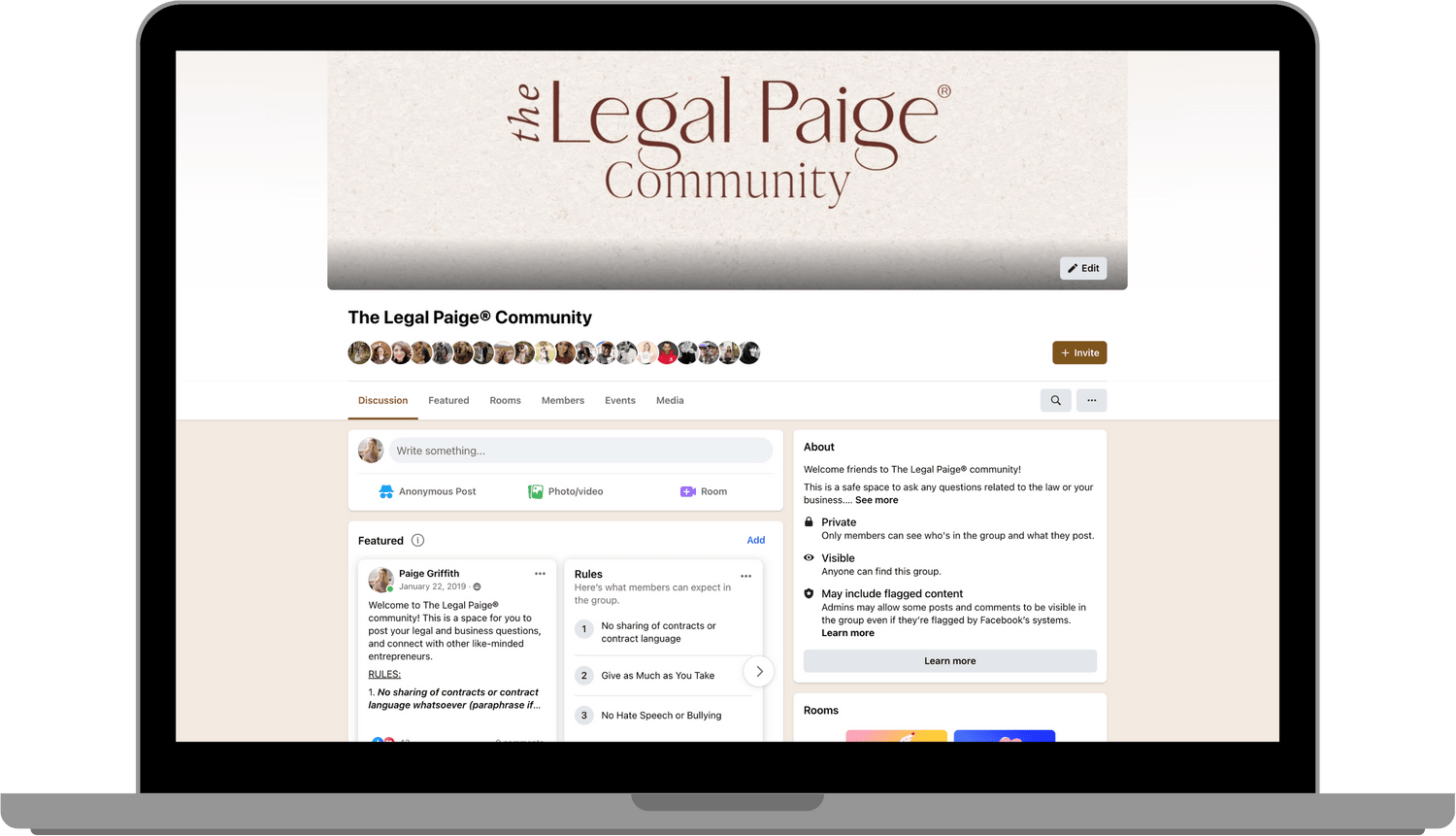
What's the Difference Between a Trademark and Copyright?!
You have probably heard the words “trademark” and “copyright” thrown around but are not sure why you might need them or really the difference between the two terms. Understanding the intellectual property rights you may be entitled to could be vital to your business. So let's get into the differences between the two!
Copyright
Copyright is a type of intellectual property that protects original works of authorship as soon as an author fixes the work in a tangible form of expression. A Copyright has to be (1) original, (2) creative, (3) in a tangible medium, (4) have authorship, and (5) be in use. A Copyright does not have to be registered to be protected. For instance, when a camera clicks, the photograph that was just taken is considered a copyrightable work of art. One of the unique things about a copyrighted work is that you can use the copyright symbol, a Copyright (©), and attach it to a work of original authorship such as writing, artwork, photographs, and many other mediums. A copyright lasts for the life of the author, plus 75 years. Material that doesn't have an author retains the copyright for 95 years from publishing or 120 years after creation, whichever is shorter.
Copyrights can be registered with the U.S. Copyright Office. There are a few reasons to register your copyright. One of the reasons is you have a clear record that you are the owner of the copyright. This record can be turned into evidence to be used to quash infringement in court. Additionally, registered works may be eligible for additional statutory damages and attorney's fees if you win a lawsuit.
Common Copyrights that are Registered
- Photographs
- Books
- Paintings
- Online Courses
- Songs
- Blogs
Trademark
A trademark refers to a recognizable insignia, phrase, word, or symbol that denotes a specific product and legally differentiates it from all other products of its kind. A trademark identifies the brand name of a particular product or service. Trademark rights can last forever as long as you are using the mark in commerce! Like Copyrights, Trademarks do not need to be registered to be protected but their protection is not as widespread if it is not registered.
For instance, if there was a Mcdonald's Restaurant that opened in 1940 in Missoula MT., the famous franchise McDonald's that everyone knows and loves could not sue them for trademark infringement. Here is why: the famous McDonald's did not start using its trademark until 1955, whereas Mcdonald's Restaurant has had common law usage over their mark since 1940 in Missoula, MT. The famous McDonald's can still register for their mark but Mcdonald's Restaurant would still have priority over the trademark in the Missoula area because they have common law rights, meaning the famous McDonald's would be prevented from franchising in the Missoula area.
As you can see common law marks are still powerful if you are just trying to protect your mark in your immediate region. However, if you are trying to protect your mark nationally you should register your mark with the USPTO! Registering your trademark ensures that you alone in the nation can use that trademark in connection with that good or service. So if you plan on selling online or having a website registering your trademarks is ALWAYS a good idea! Additionally, when you register your trademarks you get to use this symbol- ®. This symbol lets everyone know you have protected your trademark by registering it with the USPTO.
List of things you can Trademark
- Logos
- Business names
- Taglines
- Sounds
- Colors (this is rare but possible!)
- E-Course names/titles
- Hashtags
- Packaging design (registered as trade dress)
Registration Tips
There are a few ways that you can register your copyrights and trademarks. The first way is to do it yourself! You do not need to be an attorney to register your intellectual property with the government. For copyrights, you would want to register your works of art with the Copyright Office. For trademarks, you will be registering them with the United States Patent and Trademark Office (“USPTO”). If you are a confident DIYer and feel like you can register your intellectual property yourself then we say go for it! The downside of registering yourself is you are risking registering for a mark that is already in use or you may register the mark wrong and have your application denied.
The second way you can register is with the help of a licensed attorney! Attorneys should conduct a full clearance search before registering your trademarks so that you know your chances of successful registration. Additionally, attorneys should be familiar with the process of registration with the Copyright and Trademark Office, ultimately saving you time in your business.
If you are ready to take the next step to protect your intellectual property and are looking for an attorney to help with the registration of your intellectual property you can contact Griffith Law today!
Is someone copying your business? Check out what you can do by clicking HERE.
THIS BLOG POST IS NOT A SUBSTITUTE FOR LEGAL ADVICE. EVERY SITUATION IS DIFFERENT & IS FACT-SPECIFIC. A proper legal analysis is necessary based on your location and contract. Consult an attorney in your home state for advice regarding your contract or specific legal situation.

Join the Community
Be a part of 8000+ TLP Community Members in this safe space and get real-time answers from Paige and her legal team daily!

Leave a comment